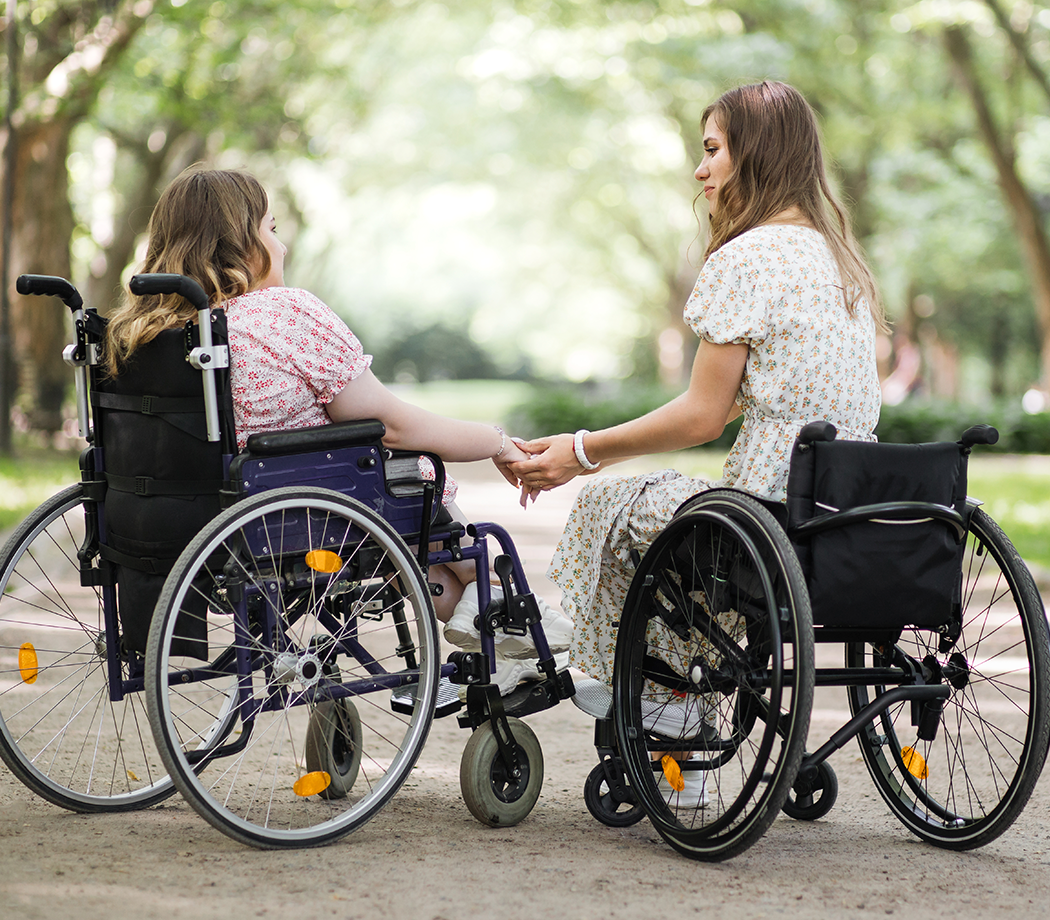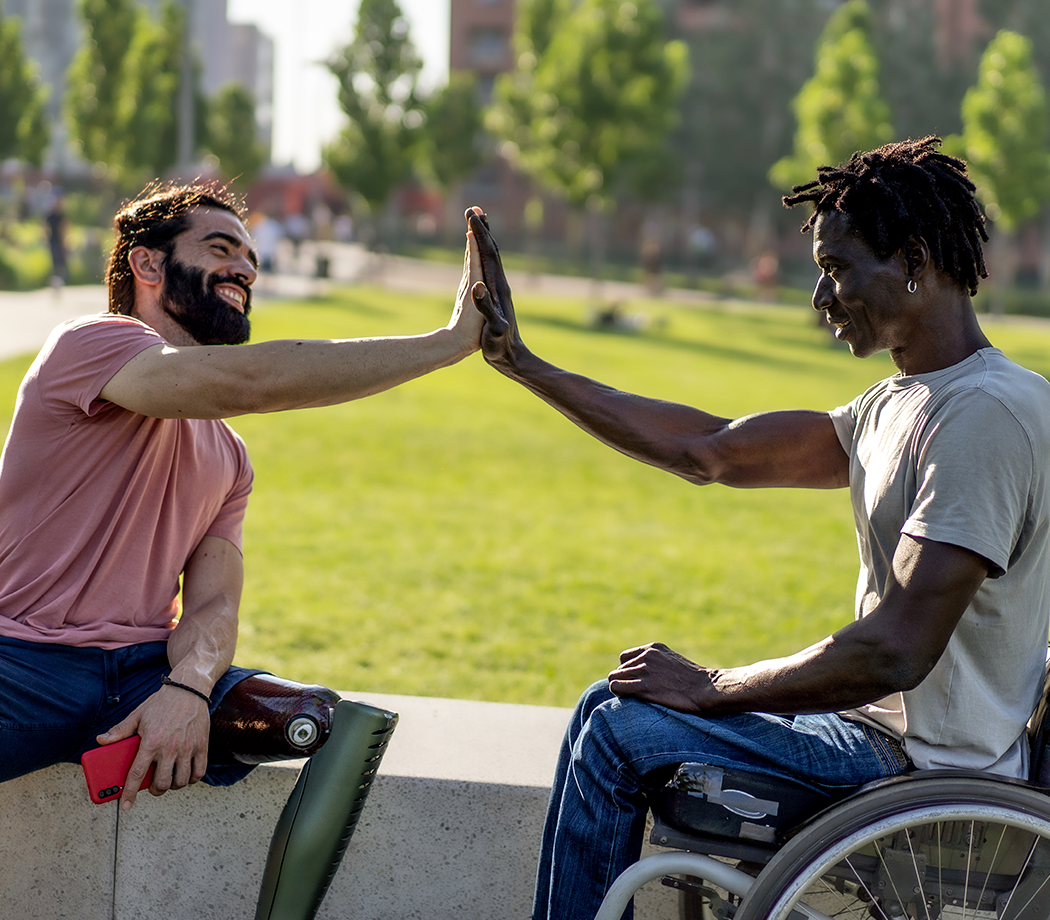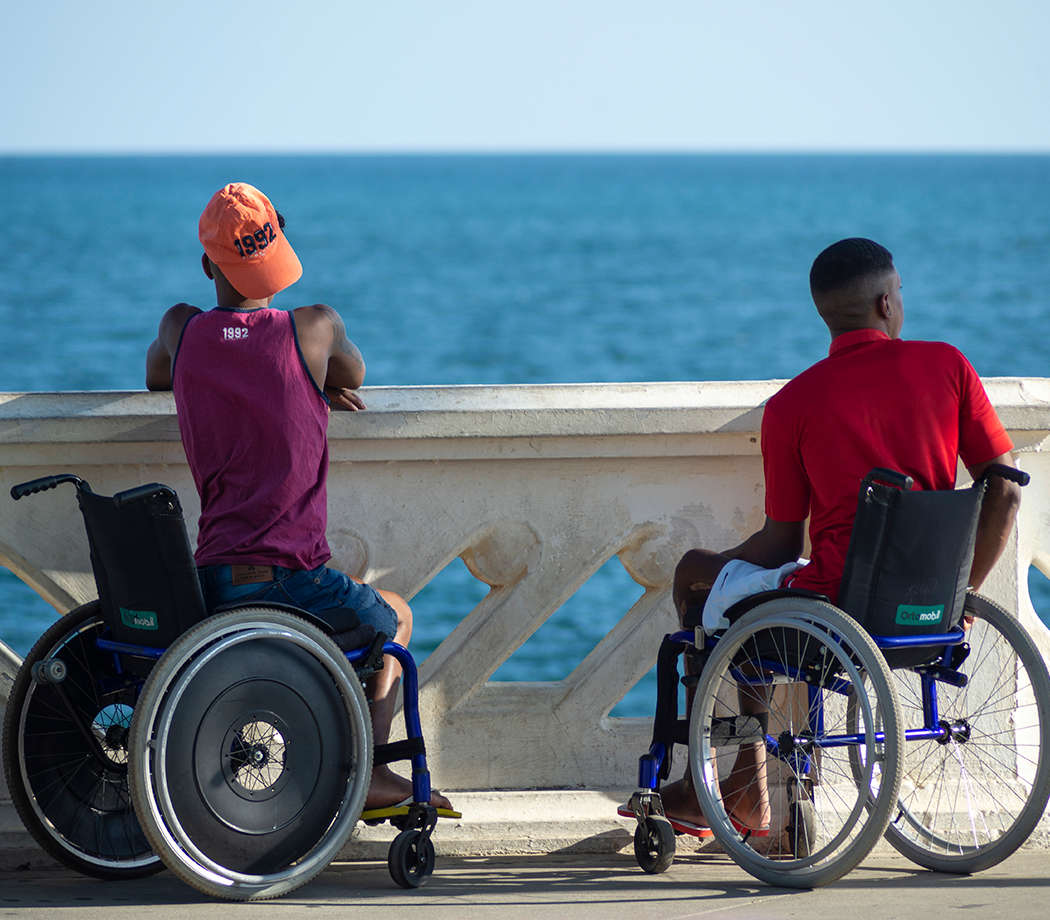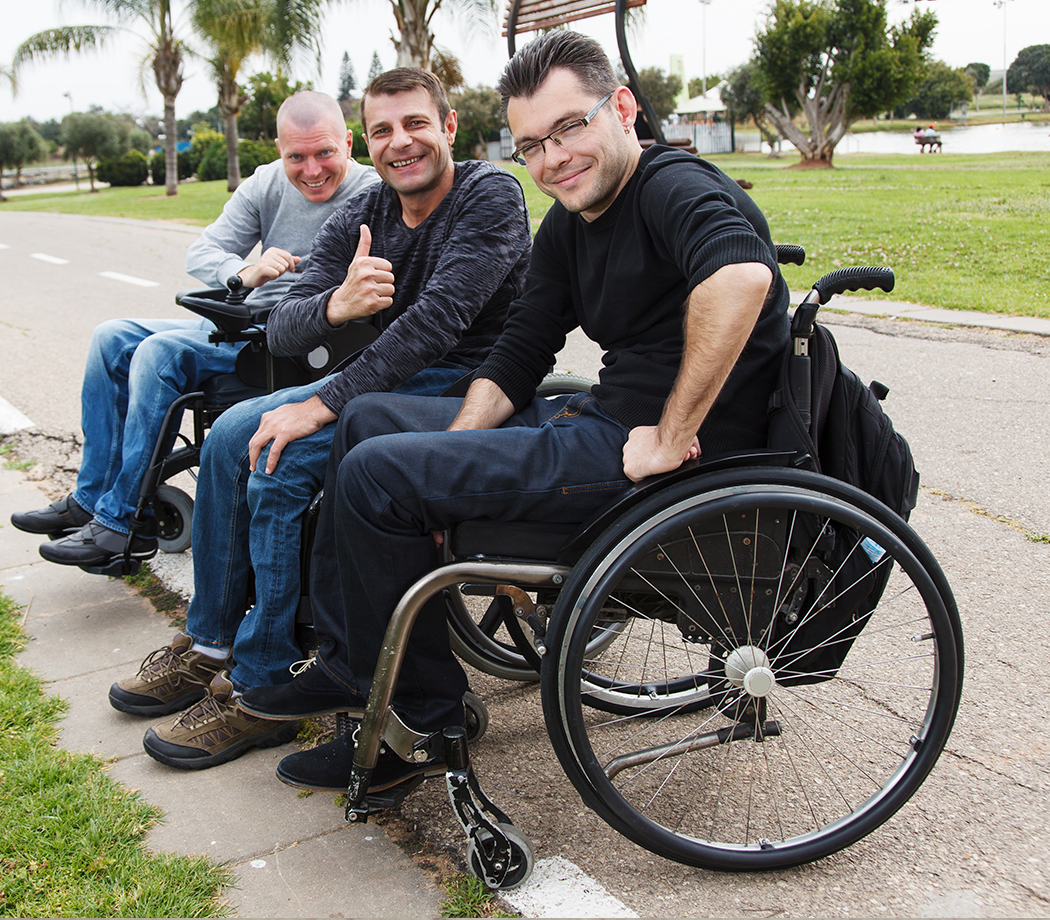Program Overview
What is the Peer & Family Support Program?
The best source of knowledge is experience. For people living with paralysis and their family members or caregivers, learning to navigate their changing world can be challenging and overwhelming at times.
That’s why the Christopher & Dana Reeve Foundation created the Peer & Family Support Program for people living with paralysis, as well as those who care for them, to connect for hope, support, and a way forward.
Available across the country, our free peer-to-peer network helps everyone, from newly paralyzed individuals and their family members to people who have lived with paralysis for some time, by offering the personalized information and resources you need to live a fulfilling life.
What is a Peer Mentor?
A Reeve certified Peer Mentor is someone who wants to make a difference by helping and supporting members of the paralysis community.
Our Peer Mentors:
- Have at least a year’s experience of living with paralysis or as a family member or caregiver of someone living with paralysis
- Have the time to volunteer in the program
- Have good interpersonal skills
- Are thriving in life
- Are knowledgeable about resources available to the paralysis community
Approximately 22,000 people have been helped by our Peer Mentors located in over 40 states.
How Can a Peer Mentor Help?
With years of real-world experience and access to an unparalleled amount of information and resources, your mentor is well equipped to offer help on a variety of topics like:
- Transitioning home from a rehab center
- Going back to work or school
- Maintaining relationships
- Getting information and perspective on health and secondary conditions
- Coping with the responsibilities and emotional challenges of being a family member/caregiver
- Building confidence and motivation
- Navigating local, state, and national resources
- And much, much more
Becoming a Peer Mentor
The peer mentor training and certification process is a critical part of the Peer & Family Support Program. Training is a class that is attended through a virtual session and is a combination of presentations and group discussions that encourage people to share their experiences. Some of the topics covered in the presentations include: effective peer mentoring, ethics, interpersonal communication skills, helpful tips, and resources in mentoring and goal-setting.
Certification Requirements
Each Peer Mentor candidate must complete specific requirements to be certified:
- Complete an application
- Attend a virtual training and actively participate
- Agree to a background check by signing a consent form and to a code of conduct
Peer Mentor Application
The Peer & Family Support Program is not accepting applications to become a mentor at this time.
Make an Impact
In only a matter of years, the Peer & Family Support Program has made an indelible mark on the paralysis community. Need proof? Take a look at some of our key stats:
- We have conducted over 100 training sessions
- We have certified peer mentors in more than 40 states
- We have over 500 peer mentors
- We have over 22,000 peers (people that have been or are being mentored)
- We have partners across the country
Here is what a peer recently said about the Peer & Family Support Program:
“Having a peer mentor has meant a lot to me as I have felt alone in a community of people without disabilities, even in my own house. No one understands what I am going through better than a peer mentor. I am working with Tom and he is helping me advocate for myself, providing accessible housing resources so that I can move out of my mom’s house and helping me with a job search.”
Download the latest Peer & Family Support Program brochure.
Descargue el folleto más reciente del programa para más información.




